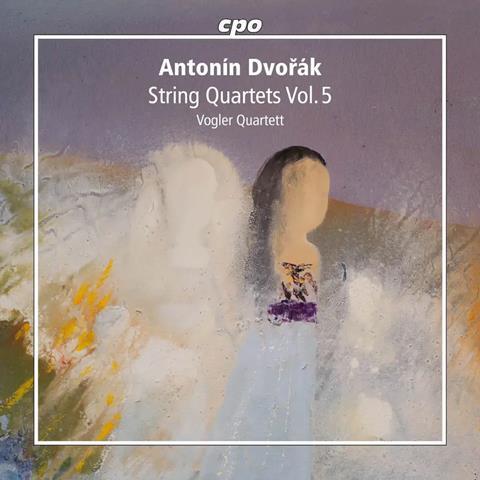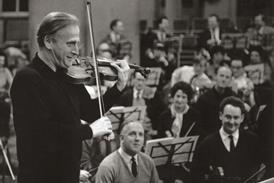Powerful advocacy makes this emerging cycle a vital listen

The Strad Issue: April 2025
Description: Powerful advocacy makes this emerging cycle a vital listen
Musicians: Vogler Quartet, Frithjof-Martin Grabner (double bass)
Works: Dvořák: String Quartets vol.5: nos. 1, 7 and 11; Two Waltzes op.54
Catalogue number: CPO CPO555 672-2 (2 CDs)
The Czech national composer he may be, but Dvořák’s career appears to fall into two distinct parts: the music from the second well known, that from the first barely at all. Compare Beethoven, all of whose instrumental output is at the heart of the repertoire, or Brahms, whose music in all the major instrumental forms is familiar to us. When we come to Brahms’s friend and protégé Dvořák, though, the picture is different: only the last three symphonies are heard regularly, and of the string quartets, only the last few are at all familiar.
Certainly, his first foray into quartet writing is hardly ever heard outside completist projects such as this. The 21-year-old student and violist displays his innate feeling for string textures in a work that already radiates the lyric generosity of his later music, even if ambition outweighs discipline over its 40-minute span. Beethoven, Mendelssohn and Schumann were his earliest quartet gods, although by the time of the Quartet no.7, twelve years later, Slavonic folk elements – the mazurka and sousedská – are heard alongside greater concentration and economy of means. And in his Quartet no.11 (1881), the elements that make Dvořák what he is are all in place, not least that essential sense of a national identity, allied with absolute command of material and form.
Then consider there are five times as many recordings available of Quartet no.12 than there are of no.11, barely a lesser masterpiece. These impeccable performances in involving if slightly dry sound shine a valuable light on a neglected corner of the composer’s output.
DAVID THREASHER



































No comments yet